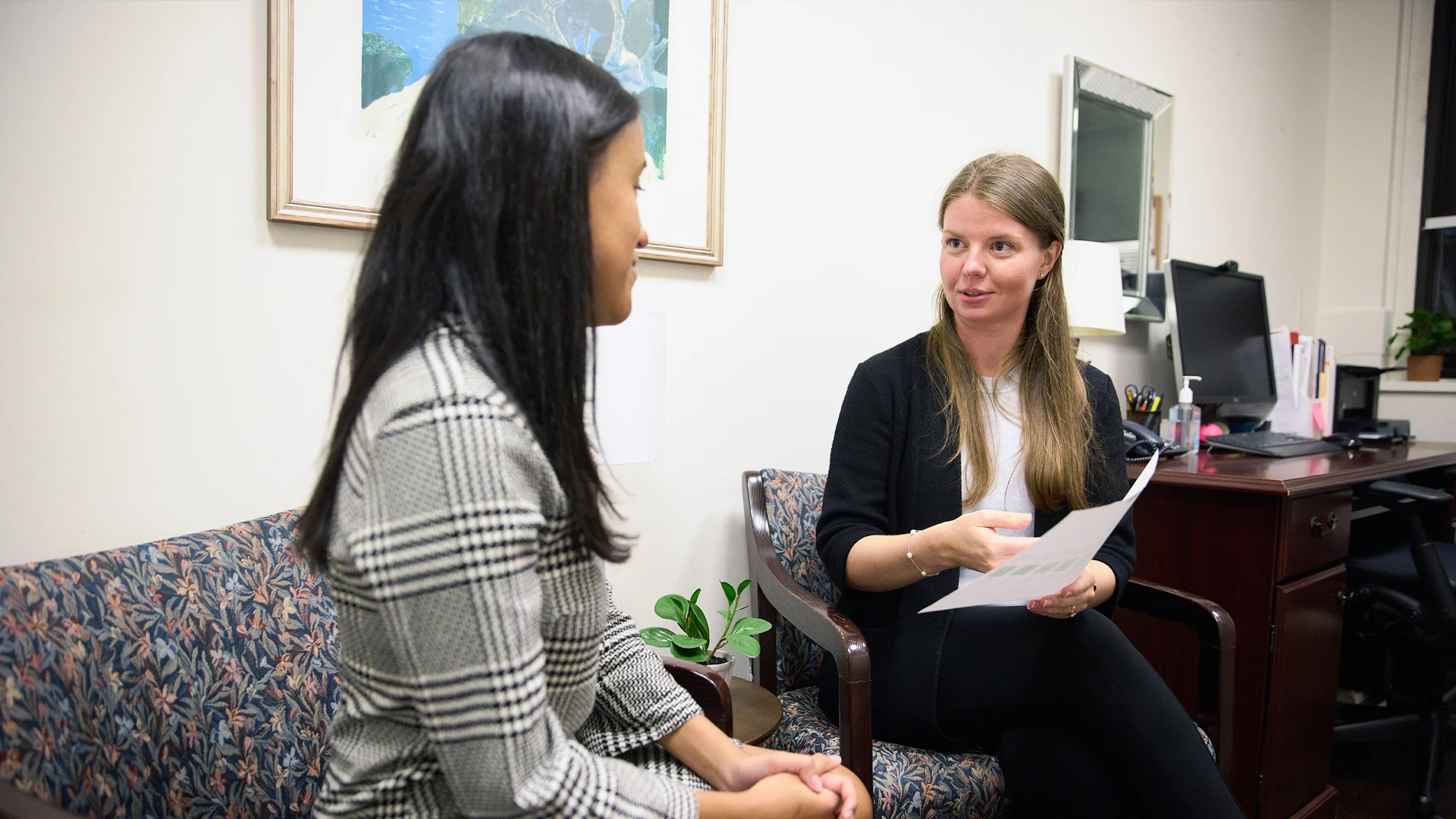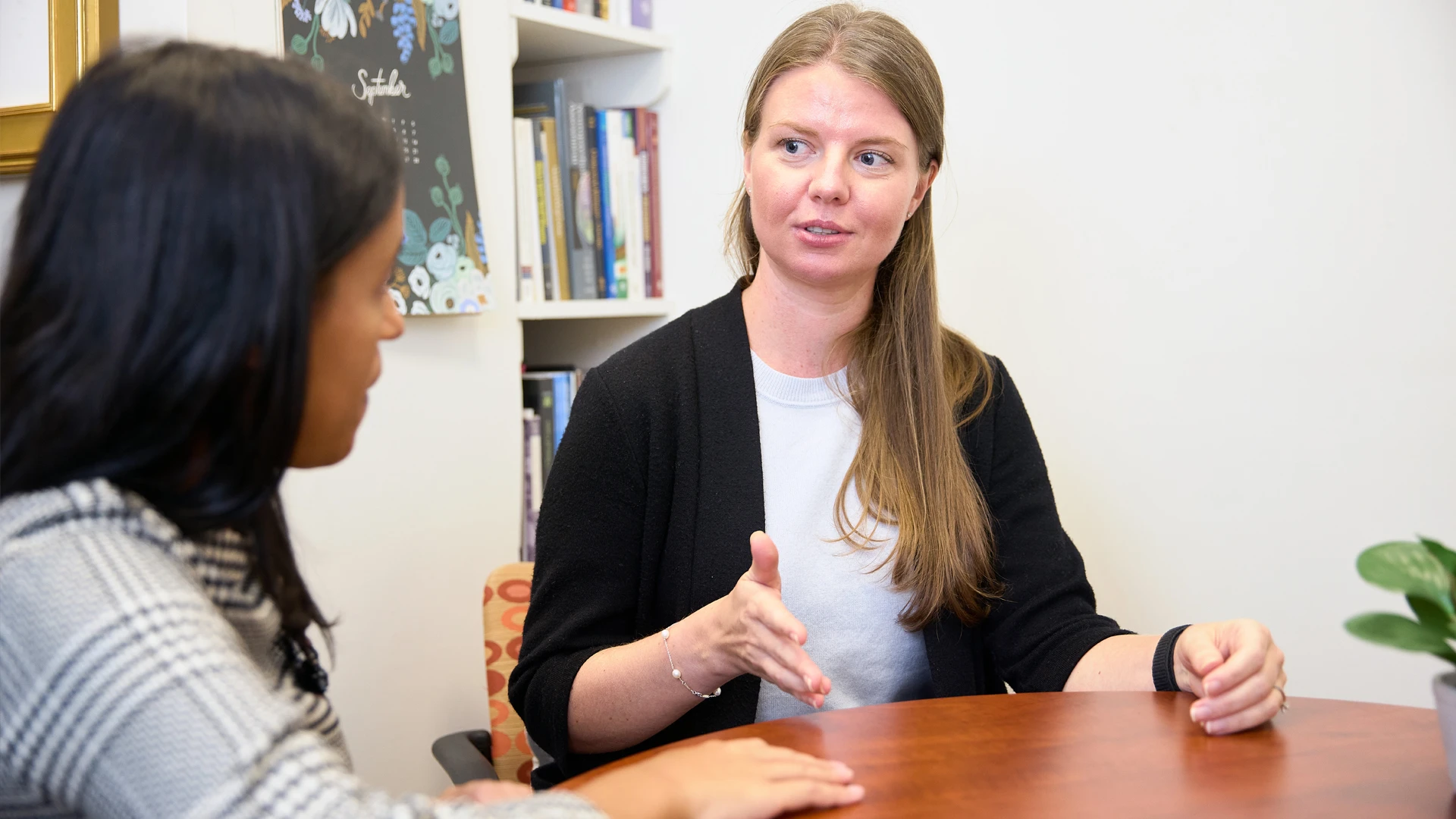Patients who have sustained a traumatic brain injury (TBI) can experience emotional dysregulation. Prior to 2014, Mount Sinai had been developing a comprehensive day treatment program for executive functioning that had an emotion dysregulation component. Inspired by the clinical successes seen in the day program, researchers decided to move ahead with a randomized controlled trial in which an intervention targeting emotional dysregulation specifically is delivered using online video conferencing.
The decision to pull out emotional dysregulation and study it on its own online was in part to increase access, said Maria Kajankova, PhD, Assistant Professor of Rehabilitation and Human Performance at the Icahn School of Medicine at Mount Sinai.
The day treatment program was a three-day format, which was challenging for patients to adhere to. They had to travel to Mount Sinai thrice weekly and stay for several hours. The emotional dysregulation component was turned into one-hour sessions twice a week, and it being online addressed travel time and costs for patients, Dr. Kajankova said, adding the intervention being online meant access even to rural parts of New York or other states.

Maria Kajankova, PhD (right), and project manager Annell Ovalles, MPH, are working on a clinical trial on an online treatment for emotional dysregulation.
“Seeing how effective that component was in clinical practice, it occurred to us that we should make it a standalone intervention and take it online to see how we could have a direct impact on outcomes,” she said.
The randomized controlled trial, which started in 2017 and closed in 2022, was possible thanks to clinical success seen in a feasibility and preliminary efficacy study that took place from 2012 to 2017, with feasibility data published in 2014.
The ongoing trial has had an interim look at its outcomes in April 2022. That data, along with the positive feasibility and pre-/post-preliminary efficacy results, could help set the stage for a training program for other clinicians.
“Although there are interventions targeted for other populations with emotional dysregulation, we are not aware of any that have been structured, studied, or targeted to the TBI-related population to the degree that ours has,” Dr. Kajankova says.
Potential is Built on Gradual Successes
The ongoing trial was open to select states across the country, and participants were randomized to start the intervention or placed on a waitlist before receiving treatment. Interventions were delivered twice a week for 12 weeks through one-hour sessions, each led by a therapist who has extensive training in cognitive behavioral therapy, TBI neurorehabilitation, and group therapy.
The goal is to help patients with TBI-related emotion dysregulation gain more understanding of the emotions they are experiencing and incorporate coping strategies that can help them manage their emotions more effectively in their daily lives.
Initial sessions focused on didactics, such as defining emotional dysregulation and the components of the emotional cycle—triggers, emotions, sensations, thoughts, and behaviors — and learning strategies to help them manage their emotional experiences. Once participants demonstrated a strong grasp of these concepts and how they work together, the interventions shifted focus to practice — practice using the emotional cycle using real-world examples.

The clinical trial, which had an overwhelming enrollment response, has shown promising signs in its interim results, and Dr. Kajankova is hopeful more clinicians can adopt the online treatment.
Response for the trial had been robust, and Dr. Kajankova said some participants had to be turned away, either because the study had closed enrollment or it was not available in their states.
“The team had a similar experience during the preliminary efficacy study, having to close enrollment early and turn people away,” Dr. Kajankova says. “That took us a bit by surprise, but it is an indication as to how many people are experiencing challenges with emotional dysregulation and are seeking help in this area.”
Of the 102 participants enrolled in the ongoing trial, 58 completed the final post-treatment assessment. An interim analysis found that these participants achieved significant improvements in the Difficulty in Emotion Regulation Scores (DERS) measure.
Interim findings:
Participants who were treated saw significant Time and Treatment by Time improvements (p<.001).
DERS:
Significantly improved at week 2, peaking at week 4 (time of assessment)(ES=1.06).
The goal now for Dr. Kajankova is to validate these findings and enable other clinicians to adopt this approach to treat their patients. That effort is being facilitated by a five-year implementation study that is training clinicians in delivering the intervention and measuring implementation and effectiveness outcomes.
“Five years ago, implementation science was not at the point it is today, and funding agencies were not pushing for that,” Dr. Kajankova says. “Given the changes that have occurred since then, this is a good time to be doing this work. Our priority is to make this tangible, effective intervention available to those who need it.”
Featured

Maria Kajankova, PhD
Assistant Professor, Rehabilitation and Human Performance
